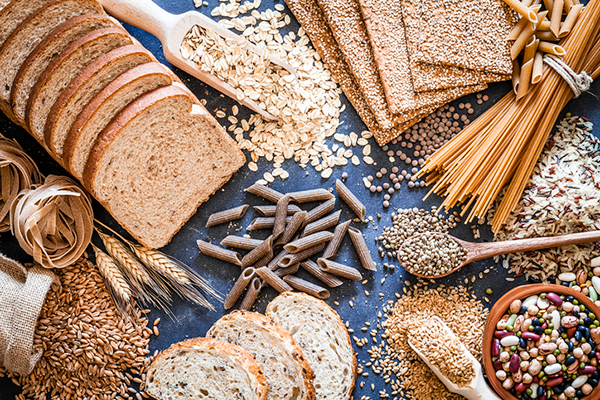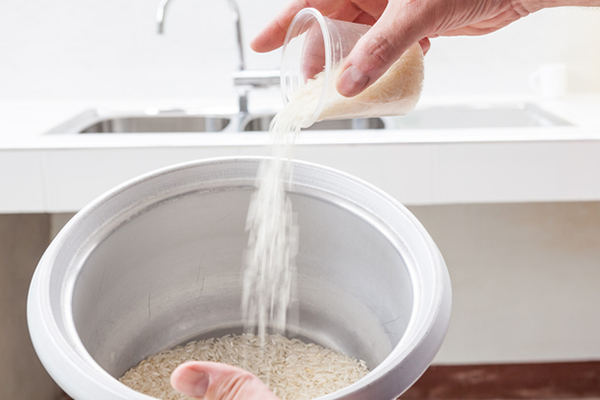The Most Misunderstood Macro: Why Carbs Matter More Than You Think

As one of the three essential macronutrients — the others being protein and fat — carbohydrates are the body’s primary fuel source. But to many a dietary expert’s dismay, carbs have become the misunderstood middle child of nutrition.
Popular low-carb eating plans like keto and paleo — and the weight loss they promise — have given some the mistaken impression that carbs are to be avoided at all costs. But that can come at the expense of your energy levels, nutrition, and overall health. Here’s why.
Why Do You Need Carbs?

1. Carbs are the body’s preferred source of energy
“The body loves carbohydrates,” says Alex D’Elia, RDN, CDN, a registered dietitian nutritionist with Olox Nutrition in New York City. “It prefers carbs for energy because they are the easiest and quickest to access.”
After you ingest carbs, the body converts them into glucose, which your cells use for fuel.
2. Carbs can be highly nutritious
“Some of the healthiest and most beneficial foods are carbohydrates — vegetables, fruit, legumes, seeds and beans, and some whole grains,” says D’Elia. “All of those make up the largest portion of some of the healthiest diets in the world — think Mediterranean.”
3. Carbs can be high in fiber
“Fiber is a huge selling point for carbs,” says D’Elia. “Fiber helps regulate blood sugar, helps you poop regularly, and increases satiety so you feel fuller longer.”
Remember that there are two types of carbohydrates:
- Complex carbs are those healthy carbs — including whole grains, beans, legumes, fruits, and vegetables. They digest slowly, allowing for a gradual release of energy. Most complex carbs contain fiber and vitamins, minerals, and phytonutrients.
- Simple carbs (also known as refined carbs) are quickly digested, low in fiber and nutrients, and often high in added sugar. They include “white” flour, baked goods, processed foods, and drinks with added sugars. These are carbs that aren’t whole foods found in nature.
Why Do People Cut Carbs For Weight Loss?
“Carbohydrates have acquired a bad reputation over the years, and many diets now focus on low carbohydrate intake,” says Allison Gregg, RDN, LD/N, a registered dietitian nutritionist in Jacksonville, Florida. “People may cut out carbohydrates for weight loss because it may help lower total calorie intake and shift energy production.”
That shift is the principle behind the super-popular keto diet. “A low-carbohydrate diet intends for weight loss to be achieved through burning stored fat for energy instead of carbohydrates,” explains Gregg.
But keto has its detractors — including many nutritionists — who say that while the diet may initially cause quick weight loss, it is often not sustainable because its restrictive nature can be a mental and physical bummer.
Gregg adds, “A sudden and dramatic reduction in carbohydrate intake can lead to short term constipation, headaches, and muscle cramps” — the phenomenon known as the “keto flu.”
How Many Carbs Do You Really Need?

According to the Dietary Guidelines for Americans, carbs should comprise 45 to 65 percent of your daily calories. “This means if you consume 2,000 calories in a day, your carbohydrate intake should be between 900 and 1,300 calories a day, equal to 225 to 325 grams of carbohydrate,” says Gregg.
Use that as a baseline. If you’re highly active, you may need more carbs overall, and boosting carb intake at different times of day may improve your performance.
“The more active you are, the more fuel your cells will need, which they’ll innately turn to carb-created glucose for,” says John Fawkes, an NSCA-certified personal trainer in Los Angeles.
“Play around with the types of carbohydrates you consume, at what time, and how these things make your body feel after eating.” Some of Fawkes’ clients crave carbs earlier in the day, eating oatmeal or protein pancakes for breakfast and a complex carb with lunch; others prefer lighter-carb meals and snacks until the afternoon.
Looking to lose weight? That doesn’t mean you need to count carbs. Here’s how you can fill your plate: Eat whole foods, avoid processed junk, and at each meal, allot half your plate to fruits and vegetables, a fourth to healthy starch, and a fourth to protein.
Whatever you do, don’t try to go carb-free. Remember, your body needs carbs.
“Carbs have gotten a bad rap as a source for weight gain,” says Lisa Young, Ph.D., RDN, a registered dietitian nutritionist and adjunct professor of nutrition at NYU. “This is only partially true. The wrong carbs in oversized portions — big bagels, sodas, cookies, and other sugary products — should be avoided. However, healthy carbs from fruits, veggies, low-fat dairy, and whole grains should be included in the diet, even a weight-loss diet.”
